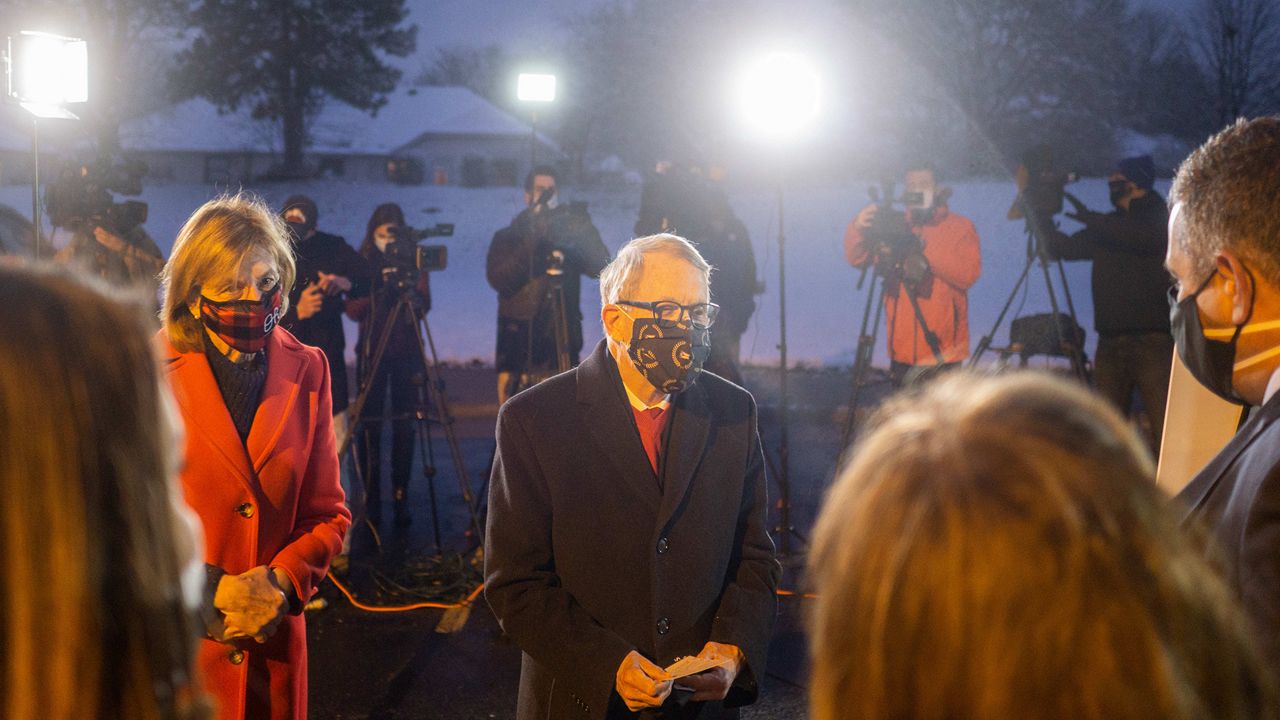COLUMBUS, Ohio — Ohio Chief Medical Officer Dr. Bruce Vanderhoff testified against Senate Bill 22 on Wednesday at the Ohio Statehouse, saying it’ll set a precedent for possible future health crises.
If passed, the bill would allow the General Assembly to rescind orders set by Gov. Mike DeWine or the Ohio Department of Health. It would also limit any public health order that’s a State of Emergency to 30 days. The only way it could be extended is if the legislature votes in favor of the decision.
“Let’s not take reactive measures that ensure future generations will be ill-prepared to protect the health and safety of Ohioans,” Vanderhoff said.
Dr. Andrew Thomas, the chief clinic officer at the Ohio State University Wexner Medical Center, spoke on behalf of the Ohio State Medical Association. Thomas said even with the rollout of the vaccines, the state is not “out of the woods yet,” saying the virus is still unpredictable.
Thomas noted as research continues, passing the bill would put tens of thousands of residents at risk.
“ODH has done their best to maintain consistency — to remain consistent with recommendations from the U.S. Centers for Disease Control and Prevention, the White House Coronavirus, Task Force and other established scientific experts in this field. If this bill will be passed, it would tie the hands of the governor and duly-appointed leadership and state departments from enacting rules in order to prevent the spread of an infectious disease and the unnecessary death of Ohioans,” Thomas said.
Vanderhoff said he understood the actions taken in the past — the stay-at-home orders and mask mandates — may have upended lives, but he claims they were necessary to stop the spread of the virus.
“We must be able to respond aggressively. We've now seen how quickly the situation can escalate. Ohio's daily case counts eclipsed 10,000 for 14 days and late November early January. Those high case numbers lead to more deaths and unsustainable hospitalizations,” Vanderhoff explained.
Sen. Rob McColley (R-Napolean), a co-sponsor of the bill, said he doesn’t believe the bill would affect future situations as Vanderhoff claimed, and said they were looking at the bill from “different angles.”
In the sponsor testimony of the bill, McColley said it’s meant to address the balance of power and isn’t an attack on DeWine or the Ohio Department of Health.
When DeWine issued the Stay Safe Ohio order in May, asking Ohioans to only travel for necessities and wear masks, McColley was one of the lawmakers that wanted to override it.
Ohio Republicans attempting to limit DeWine or the Ohio Department of Health’s power to issue health orders is not new.
DeWine vetoed Senate Bill 311 in December, which would have given the legislature the power to vote down health orders.
“The notion that action cannot be taken to prevent the spread of any serious illness to those who have not been directly exposed is contradictory to public health best practices that have been scientifically tested and verified over the past 100 years,” DeWine said.
The Ohio Department of Health has pointed to the Ohio Revised Code section 3701.13, which says the department has the power to enact orders to protect residents from “the spread of contagious or infectious diseases.”
Rep. Scott Wiggam (R-Wayne County), who led the effort behind Senate Bill 311, also introduced a bill in the House this week that also aims to restrict health orders. House Bill 90 would give the state legislature the power to repeal public health orders from DeWine or the Ohio Department of Health. It would also have the power to end a health order after 60 days.
If the order expires, it wouldn’t be able to be reenacted for another 90 days.
DeWine has repeatedly said he plans to veto any bills that aim to limit the power of issuing health orders either from his administration or the Ohio Department of Health, saying it’s “not in the best interest of protecting the health and safety of all Ohioans.”



